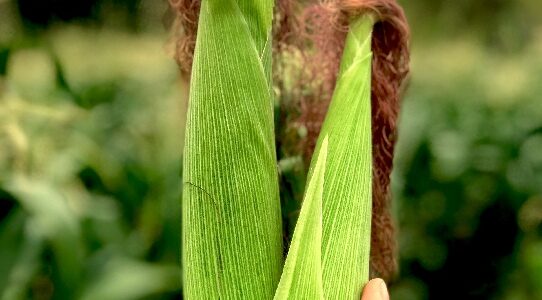With the COVID-19 outbreak upon us, it is important to keep our minds and bodies healthy. If you don’t already enjoy gardening, you may be surprised to know that it does wonders for your well-being. Here are 6 reasons why gardening is good for you.
1. POSITIVE IMPACT ON MENTAL HEALTH
Gardening can help relieve stress and reduce symptoms of depression and anxiety since it keeps you busy and focused on a project. Having something to look forward to like new sprouts, blooming flowers or even an unfurling leaf can lift your spirits. Gardening will help you take mind off things and help you focus on a goal. I once read that some hospitals even use gardening as an activity for rehabilitating people who have undergone surgeries, injuries, addiction and other medical conditions. Gardening is a natural therapy that is good for your mind and soul.
2. HELPS YOU EAT HEALTHIER
Growing your own food in the comfort of your own home also helps you to eat healthier. You’re getting fresh produce that is more nutritious with no trace (or lower detectable levels) of pesticide. You’ll have peace of mind just knowing that what you’re eating is safe and good for your body.
3. GIVES YOU A BOOST OF VITAMIN D
Exposure to sunlight while gardening increases your dose of Vitamin D as well as your Calcium level. These vitamins benefit your whole immune system and will keep your bones healthy and strong. Just remember to do your gardening in the early morning or late afternoon so it’s not too hot and you get the right amount of Vitamin D. Don’t forget to use sunscreen to protect your skin from sunburns!
4. RESTORES YOUR CONFIDENCE AND EDUCATES YOU
Whether it’s a new or an old hobby for you, there’s always a new skill to be learned learned from gardening to help build your self-esteem and restore your confidence. Gardening is a continuous process and it’s very rewarding because it teaches you valuable life skills such as a sense of responsibility, discipline, love of nature and a better understanding of how everything works in our environment.
5. PROTECTS YOUR MEMORY AND REDUCES RISK OF DEMENTIA
Engaging yourself in physical activities such as gardening can prevent dementia. It stimulates your brain and creates a sensory experience that contributes to your well-being. There were studies that proved gardening daily reduces dementia risk factors by 36%.
6. A GREAT FORM OF EXERCISE
Gardening is a great form of exercise. You may notice that you’re breaking a sweat just by doing simple garden activities such digging a hole, harvesting fruit or pulling out weeds. Gardening is considered a good workout because it allows you to stretch all your muscles and requires movement not just from your hands and arms but including your legs, back and neck. It’s a full body exercise.
In Conclusion
We do not know how long this pandemic will last, but pandemic or no pandemic — we should learn how to take care of ourselves and always think of our well-being. This lockdown has given us more time and opportunities to learn new things and set new goals for ourselves. So, if you want to keep both your mind and body in perfect shape, grab your gardening tools and start digging!


